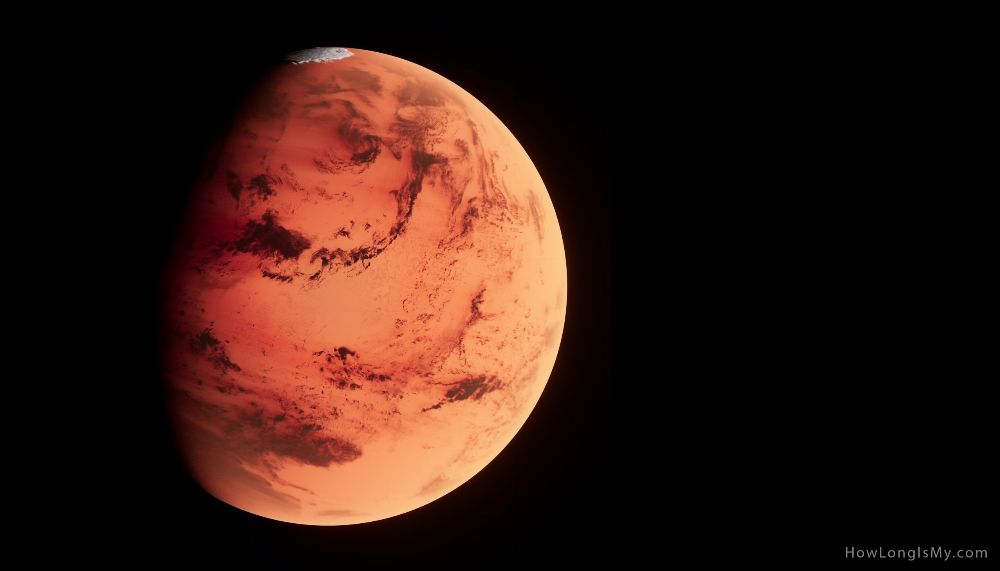The duration of a trip to Mars can vary depending on several factors, including the trajectory, propulsion technology, launch windows, and mission objectives. The shortest estimated trip duration for a Mars mission is around six to eight months, while longer missions can take up to a year or more.
Key considerations
 Hohmann Transfer. The most common trajectory used for Mars missions is the Hohmann transfer orbit, which is an elliptical path that takes advantage of the relative positions and orbits of Earth and Mars. This transfer typically takes around six to eight months, with variations based on launch windows and spacecraft speed.
Hohmann Transfer. The most common trajectory used for Mars missions is the Hohmann transfer orbit, which is an elliptical path that takes advantage of the relative positions and orbits of Earth and Mars. This transfer typically takes around six to eight months, with variations based on launch windows and spacecraft speed.- Launch Windows. The alignment of Earth and Mars in their respective orbits affects the duration of a trip to Mars. Launch windows occur approximately every 26 months when the two planets are favorably aligned for a mission. Missing a launch window may require waiting for the next opportunity, adding to the overall trip duration.
- Mission Duration. The duration of a trip to Mars also depends on the mission’s objectives and the intended stay on Mars. If the mission includes landing on Mars and conducting scientific research or exploration, the overall mission duration will be longer.
- Return Trip. The duration of a round-trip mission to Mars will be significantly longer than a one-way trip. The return trip will depend on the mission plan and whether there are provisions for in-situ resource utilization (such as generating fuel for the return journey) or a separate return vehicle.
The advancements in technology and mission planning can potentially reduce the trip duration in the future. Additionally, crewed missions to Mars would require additional considerations for life support systems, crew health, and long-duration space travel.
What’s the cost of a trip to Mars?
 The cost of a Mars mission can vary significantly depending on the mission scope, duration, technology, and various other factors. Here are some reasons why a trip to Mars is considered costly:
The cost of a Mars mission can vary significantly depending on the mission scope, duration, technology, and various other factors. Here are some reasons why a trip to Mars is considered costly:
- Research and Development. Developing the necessary technology, spacecraft, and infrastructure for a Mars mission involves extensive research, engineering, and testing. These activities require substantial funding for the design and development of new technologies and systems that can withstand the challenges of interplanetary travel.
- Launch Costs. Launching spacecraft into space is expensive. The cost of launching payloads, including crewed missions, from Earth to Mars requires powerful rockets, advanced propulsion systems, and fuel. These factors contribute to the overall cost of a Mars mission.
- Mission Duration. Mars missions, particularly crewed missions, involve extended periods of time in space. Longer mission durations require additional resources and supplies, including life support systems, food, water, and medical provisions, which add to the overall cost.
- Mission Complexity. Mars missions are complex endeavors that require precise planning, navigation, and communication. These missions involve landing on Mars, conducting scientific research, and potentially returning to Earth, which adds complexity and cost to the overall mission.
- Safety and Reliability. Ensuring the safety and reliability of spacecraft and systems for human space travel is crucial. Extensive testing, redundant systems, and safety measures increase costs but are necessary to mitigate risks associated with crewed missions to Mars.
- Research and Science Objectives. Many Mars missions have scientific objectives, such as studying the Martian environment, geology, and potential for past or present life. These scientific missions require specialized instruments, equipment, and data analysis, contributing to the overall cost.
 The costs associated with Mars missions are subject to change as technology advances and new approaches to space exploration are developed. Private space companies and international collaborations also play a role in potentially reducing costs through innovation and shared resources.
The costs associated with Mars missions are subject to change as technology advances and new approaches to space exploration are developed. Private space companies and international collaborations also play a role in potentially reducing costs through innovation and shared resources.
